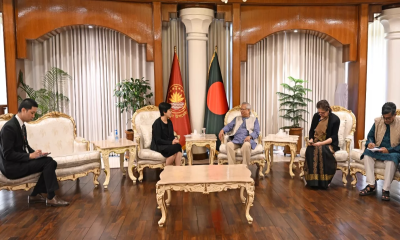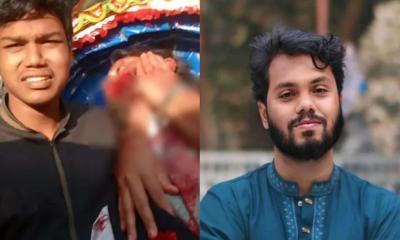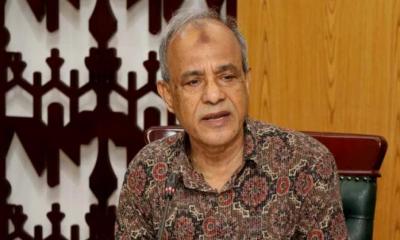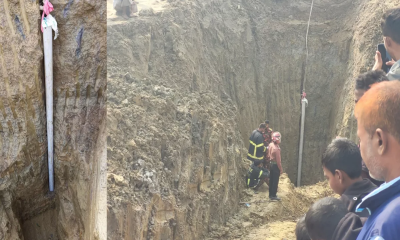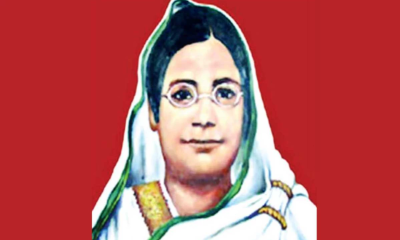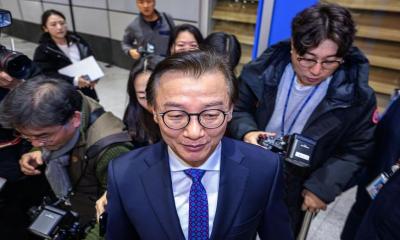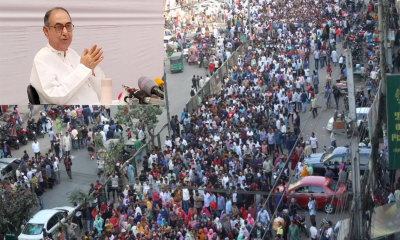In international relations, there are no permanent friends or permanent foes, but only permanent interests, say the apostles of pragmatism. But that theory would fail to explain the friendship Bangladesh had with the Soviet Union. Based on a diplomatic narrative of our ‘Mukthijodda’ in 1971 and the thoughtful evolution of sovereignty and territorial integrity of state, Bangabandhu’s daughter Sheikh Hasina had walked a diplomatic tightrope over Ukraine. Looking back in time will give some clues how the Russia’s (Former Union of Soviet Socialist Republics) diplomatic responses to the 1971’s war ensured the entry of an independent Bangladesh into the UN, providing an international framework for the new country’s orientation and aspirations.
Bangladesh abstention from voting on a resolution on March 2, 2022 is not a diplomatic dilemma at all, rather it’s the upholding consciences of our ‘Mukthijodda’.
International diplomacy before outbreak of 1971’s war was limited to uphold the democracy in Pakistan. The outcome of December 1970 parliamentary elections in Pakistan, which had resulted in the victory of Bangabandhu Sheikh Mujibur Rahman’s Awami League party in the legislature of united Pakistan, with 167 of the 313 seats, was rejected by Pakistan’s military ruler General Yahya Khan. Instead, with the launch of ‘Operation Searchlight’ on March 25, 1971, Pakistan unleashed a reign of terror and genocide.
Then its the Soviet President Nikolai Podgorny first wrote to President Yahya Khan on April 2, 1971 denouncing ‘Operation Searchlight’ and calling for a “peaceful settlement” in East Pakistan. Alongside with other countries, British PM Edward Heath wrote to President Yahya Khan on November 9 suggesting a negotiated settlement in East Pakistan with the Awami League. Also French President Georges Pompidou wrote a letter on November 18, 1971 to President Yahya Khan asking him to release Sheikh Mujib as part of a political settlement in East Pakistan.
Defence diplomacy during the war in 1971; the former Soviet Union co-formatted with India and implemented of the inter-state security policy, and its task - to create stable, long-term international relations with Bangladesh. Soviet Union vetoed UN resolution to intervene in Bangladesh’s War of Independence at least two times. India’s Foreign Minister Sardar Swaran Singh visited Moscow in June 1971 to discuss and negotiate the Indo-Soviet Treaty of Peace, Friendship and Cooperation as both countries convinced that in the world today international problems can only be solved by cooperation and not by conflict, reaffirming their determination to abide by the purposes and principles of the United Nations Charter. Finally, the Treaty of Peace, Friendship and Cooperation was signed on August 9, 1971 during Soviet Foreign Minister Andrei Gromyko’s visit to New Delhi.
This treaty immensely contributed to an modern era of international defence diplomacy so that India’s ability to successfully meet one of the greatest security challenges it has faced. The Pakistani army’s genocide in Bangladesh led to a grave security situation for India as refugees began to cross the border and it became evident that the Western powers had no real sympathy for Bangladesh’s predicament and their major objective was the maintenance of Pakistan’s territorial integrity. Henry Kissinger’s dramatic and secret visit to China from Pakistan in July 1971 led him to overlook the Pakistani army’s genocide and encouraged China to take military action, should India militarily intervene in Pakistan.
In this situation, India simply had to possess the cover of a security assurance from the Soviet Union. This was provided by Article IX of the treaty which stated inter alia, ‘In the event of either Party being subjected to an attack or a threat thereof, the High Contracting Parties shall immediately enter into mutual consultations to remove such threat and to take appropriate effective measures to ensure peace and security of their countries’.
On December 3, 1971, Pakistan Air Force launched a series of air raids on Indian air bases under the operation code named Operation Chengiz Khan. On December 5, United States began attempts for an UN-sponsored ceasefire, which were twice vetoed by the Soviet Union in the security council. However, India extended her recognition of Bangladesh on December 6.
In that situation the United States dispatched a ten-ship naval task force, the US Task Force 74, from the Seventh Fleet off South Vietnam into the Bay of Bengal. The Enterprise weighing 75,000 tonnes was the largest nuclear-powered carrier in the world with 70 fighter aircraft. The task force was to be headed by US Enterprise, at the time and still the largest aircraft carrier in the world. At the same time, UK dispatched its aircraft carrier HMS Eagle in the Arabian Sea. The US in Bay of Bengal, UK in the Arabian Sea, while Pakistan on land, India was caught. The US and UK hoped that China would also attack India.
In that situation India quietly sent Moscow a request to activate provision IX of the Indo-Soviet security treaty, under which Russia was bound to defend India in case of any external aggression. To counter this two-pronged British-American threat, Russia dispatched a nuclear-armed flotilla from Vladivostok on December 13 under the overall command of Admiral Vladimir Kruglyakov, the Commander of the 10th Operative Battle Group (Pacific Fleet).
Though the Russian fleet comprised a good number of nuclear-armed ships and atomic submarines, their missiles were of limited range (less than 300 km). Hence, to effectively counter the British and American fleets the Russian commanders had to undertake the risk of encircling them to bring them within their target. This they did with military precision. At this point, the Russians intercepted a communication from the commander of the British carrier battle group, Admiral Dimon Gordon, to the Seventh Fleet commander: “Sir, we are too late. There are the Russian atomic submarines here, and a big collection of battleships.”
The British ships fled towards Madagascar while the larger US task force stopped before entering the Bay of Bengal.
The diplomatic responses to the war demonstrated the hollowness of the UN in acting to uphold the legal obligations of the 1948 Convention on Genocide adopted to prevent mass atrocity crimes after the Second World War. The UN has failed to halt such crimes subsequently, as in Cambodia (1975-1979), Srebrenica (1992), Rwanda (1994), and the Yazidi genocide in Iraq (2014).
Diplomacy in the UN: Through a diplomatic response, Russia ensured the entry of an independent Bangladesh into the UN, providing an international framework for the new country. Under Article 99 of the UN Charter, the UN Secretary-General (UNSG) has the mandate to alert the UNSC on any issue which could threaten international peace and security. Although Secretary-General U. Thant had provided the UNSC with detailed reports regarding the humanitarian crisis in East Pakistan, but did not play a proactive role in advising the UNSC to resolve the crisis. On December 3, the US tabled a resolution by Ambassador George H.W. Bush, the envoy of the US to the UN (who would become the 41st President of the US in 1989). The resolution called for a ceasefire, withdrawal of the armed forces of India and Pakistan from each other’s territories, and the deployment of UN observers. While the US, China and nine elected members of the UNSC supported the resolution, France and the UK abstained. Soviet envoy Yakov Malik vetoed the US’s draft resolution on the ground that it did not address the need for a political settlement in East Pakistan. Poland voted against the resolution.
On December 5, the Soviet Union proposed a draft resolution which called for a political settlement in East Pakistan as a pre-requisite for the cessation of hostilities. Twelve Council members abstained on this proposal, and China opposed it on the grounds that this was an internal matter of Pakistan. The Soviet proposal was not adopted. A second draft resolution moved by the US, along with Argentina, Belgium, Burundi, Italy, Japan, Nicaragua, and Somalia on December 5 was vetoed by the Soviet Union, its second veto on successive days of the war, again on the ground that the proposal would not lead to a political settlement in East Pakistan.
Thereafter, on December 7, 50 out of the 131 member-state in the UNGA spoke, and 104 voted in favour of Argentinian resolution 2793 calling for ceasefire and withdrawal of armed forces to their respective territories, return of refugees, a role of the UN, calling on the UNSC to act.
These 104 countries included the US, China, and Pakistan. Eleven countries opposed the resolution, including India, USSR, Bhutan, and members of the Warsaw Pact, while 10 countries including France, UK, Afghanistan, Nepal, Oman, and Singapore abstained. Pakistan informed the UNSC President on December 9 of its readiness to comply with the UNGA resolution. India informed the UNSC President on December 12 of its inability to comply with the UNGA resolution as it omitted any political settlement in East Pakistan, which India had recognised on December 6 as the independent state of Bangladesh.
On December 8, Soviet leader Leonid Brezhnev wrote to President Nixon proposing a “simultaneous” ceasefire and a political settlement in East Pakistan. However, President Nixon proposed to Soviet Charge d’affaires Yuli Vorontsov, (Soviet Agriculture Minister) that in exchange for progress in US-Soviet relations on strategic arms limitation talks, the status of Berlin, a framework for cooperation and security in Europe and improved trade, the Soviet Union should agree to work with the US on a ceasefire, and talks “within a Pakistan framework” on East Pakistan. The Soviet Union did not respond to this gambit immediately.
The outcome from this Indo-Russian diplomatic narrative of the 1971, that it presaged the entry of an independent Bangladesh into the UN (after overcoming communist China’s first veto on August 25, 1972 against Bangladesh’s membership), providing an international framework for the new country’s orientation and aspirations.
Since 1971, Bangladesh has shared historical ties with Russia- the largest nuclear arsenal state with a permanent seat on the UN security council, and with whom Bangladesh has no significant conflicts and disagreements. By choosing abstain on March 2, Bangladesh also prioritised unison with the regional India, Pakistan, Sri Lanka and China of similar interest who being vocal about the war in a distant land. Wording of the subject resolution was a blame game, but Bangladesh convinced that in the world today international problems can only be solved by cooperation and not by conflict and there has to be a peace process of demilitarisation of Ukraine. But the idea that we should move the whole thing in rhetoric towards some kind of military war against Russia seems to Bangladesh an absolutely disaster. Thus, Bangladesh regretted that calls from the international community to give diplomacy and dialogue a chance had not been heeded. Bangladesh believes that all parties concerned to exercise maximum restraint, to pursue dialogue through all channels, including diplomatic means to contain the situation, to prevent it from further escalation and to see peaceful resolution in accordance with international law and the UN Charter.
Writer is currently working as a Senior Civil Servant in UK





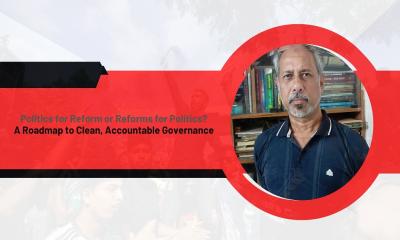

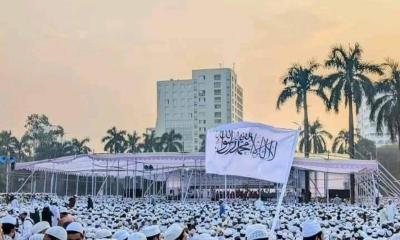

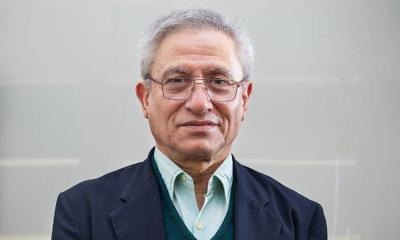
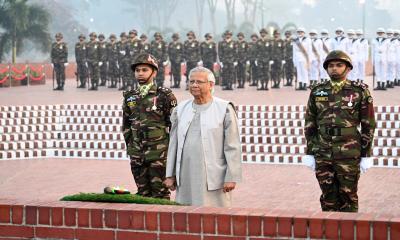
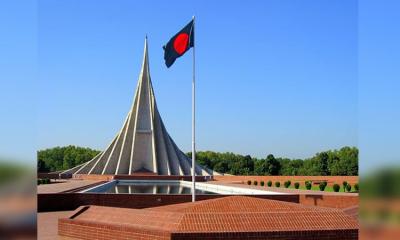
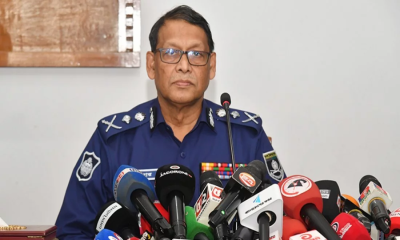
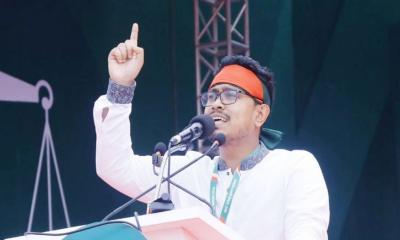
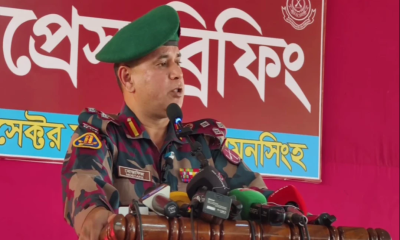
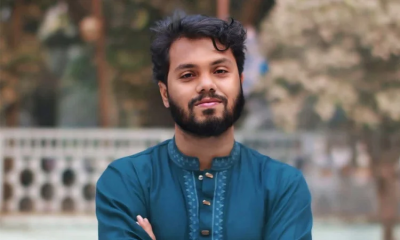
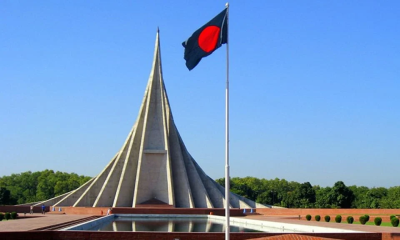
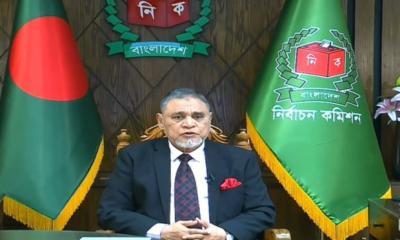
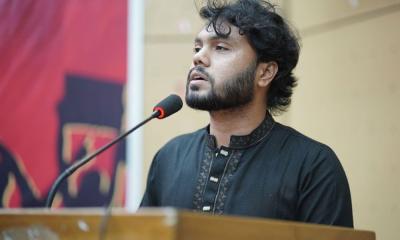
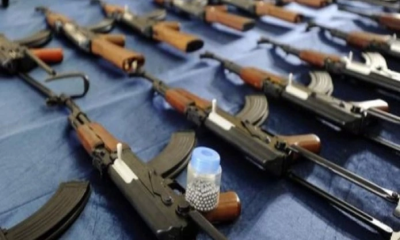
-20251214131253.webp)



